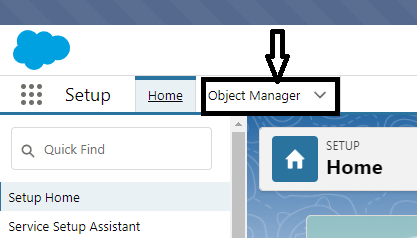Cost
Salesfoce cost includes two types of cost:
Salesforce Pricing
Salesforce provides multiple business solutions. Users can select any product or combination of multiple products.
Find out more about all our editions and pricing here. Click on the solution you’d like to explore.
A most popular product is Sales cloud with Enterprise Edition. It is a good choice to start with. It cost around $150 USD/user/month.
If you just need basic CRM only, you can select Sales Cloud – Essentials. It cost $25 USD/user/month.
Cost to implement
For small businesses, either you can use Sales Cloud – Essentials or Sales Cloud – Enterprise.
If you are using Sales Cloud – Essentials, it does not support custom development. You just need to configure and adjust it according to your business. i.e. Setting up Account, Contact, and Opportunity to accommodate custom information as per your business.
If you have some time, you can configure basic things yourself after checking out this guide.
Or you can hire Salesforce Administrator at a cost of $ 50 – $ 115 per hour, based on location and experience.
While Sales Cloud – Enterprise allows custom development using code, It is difficult for you to learn if you are not familiar with Java, and Database like stuff.
In this case, you can hire Salesforce Administrator as well as Salesforce Developer, which cost $ 60 – $ 140 per hour.
The best way to find out the cost is, to hire someone who is familiar with Salesforce as well as who can understand the business.
So finally we can say Salesforce is suitable for a business if there is a $ 4000- $ 5000 monthly budget. It includes Salesforce costs and the cost to hire Salesforce Expert.
Return on Investment
Management thinker Peter Drucker is often quoted as saying that “you can’t manage what you can’t measure.”
Drucker means that you can’t know whether or not your business is successful unless success is defined and tracked. With a clearly established metric for success, you can quantify progress and adjust your process to produce the desired outcome. Without clear objectives, you’re stuck in a constant state of guessing.
So start with the challenge that you are facing. It may be following:
- Follow up reminder for customer meet to upsell product
- Tracking progress of inhouse team
- How many support cases are logging on daily basis and who is resolving what
- Top 10% customers who are generating 50-60% revenue.
- Or anything that is useful to make decision
Ask yourself,
- What if I have this data?
- How it is going to impact your business?
- If Salesforce do this for you at cost X, will it worth 8 to 9 times of it’s cost ?
If you think, after getting such data on regular basis, you will be able to increase revenue by 3 or 4 time, than give it a try. You will surely get 8 times of what you invest.
What you need
Make a list of things that you are expecting from a CRM right now. List may includes:
- Sales of this month, this queteor and previous quoteor
- Deals of the month or week
- How many users subscribed your services this month
- Lead generation from website, auto email, follow up
- Tracking customer complaints
And list of things that you may need after 5 years
- Self service Customer portal
- 360 view of Customer (What your customer doing on social?)
- Bulk Email/SMS
Check out and compare things with other CRM based on your list. Don’t forget to create list of things that you need after 5 or 10 years.
It will be too expensive if you change your CRM later. You can understand that. Well in Salesforce, you can build anything that you imagine.
Conclusion:
You should check out your budget and keep a list of things that you need now and 5 years later. Whatever you select, it will be helpful for your business. But what about 5-6 year later, when your business going to be large. Remember that, migrating from one CRM to another CRM is always expensive in term of cost and time. It will double your learning curve. You can always start with smallest product.
